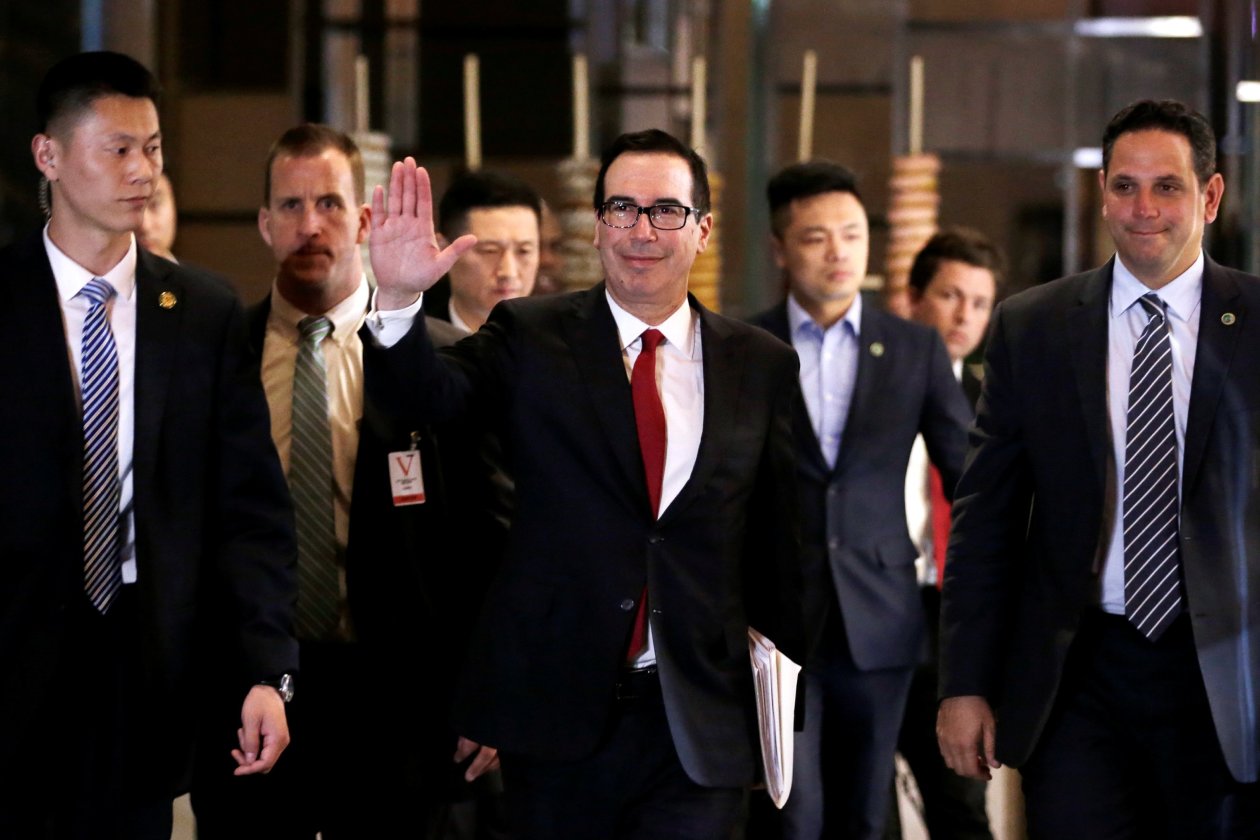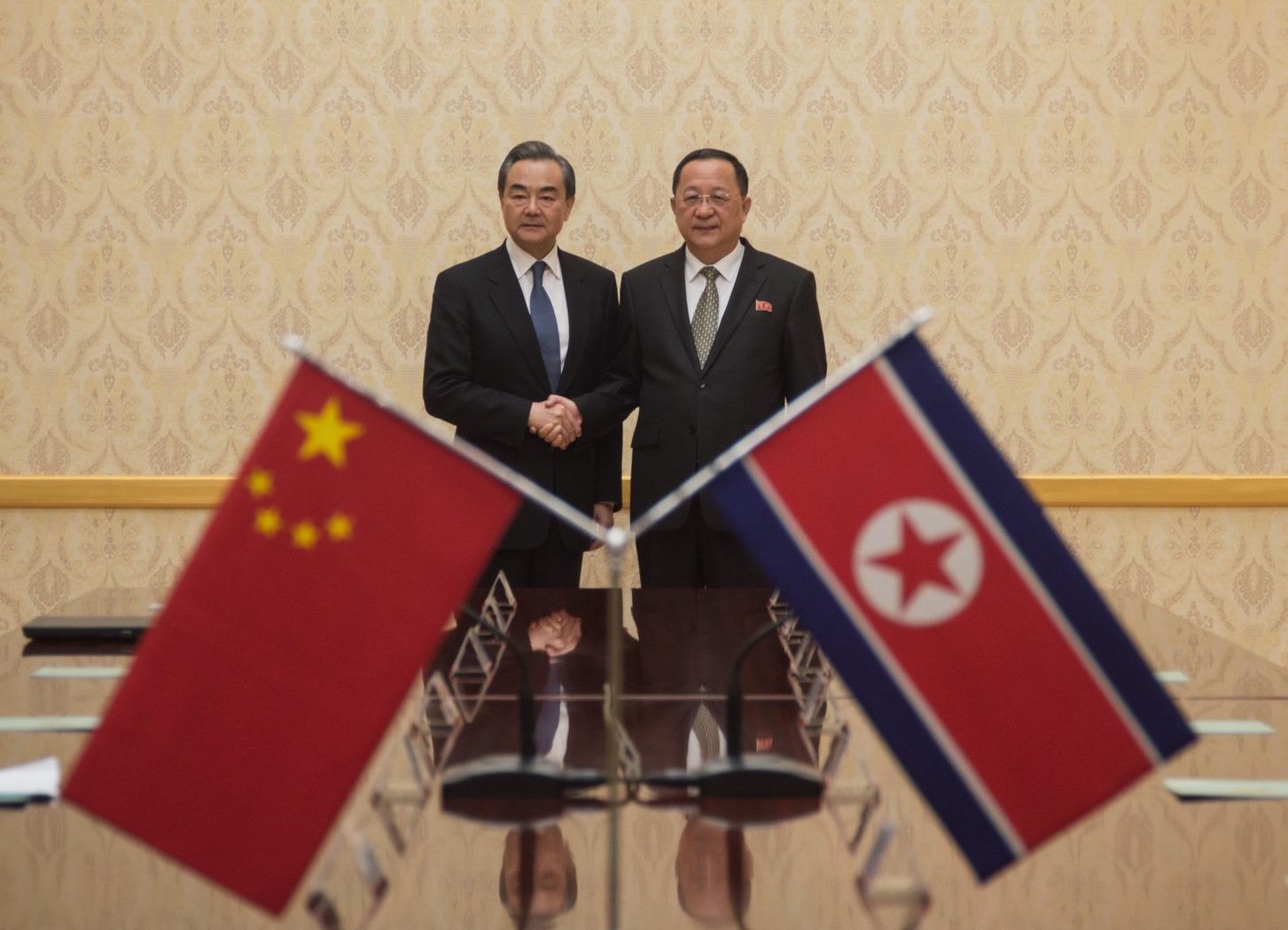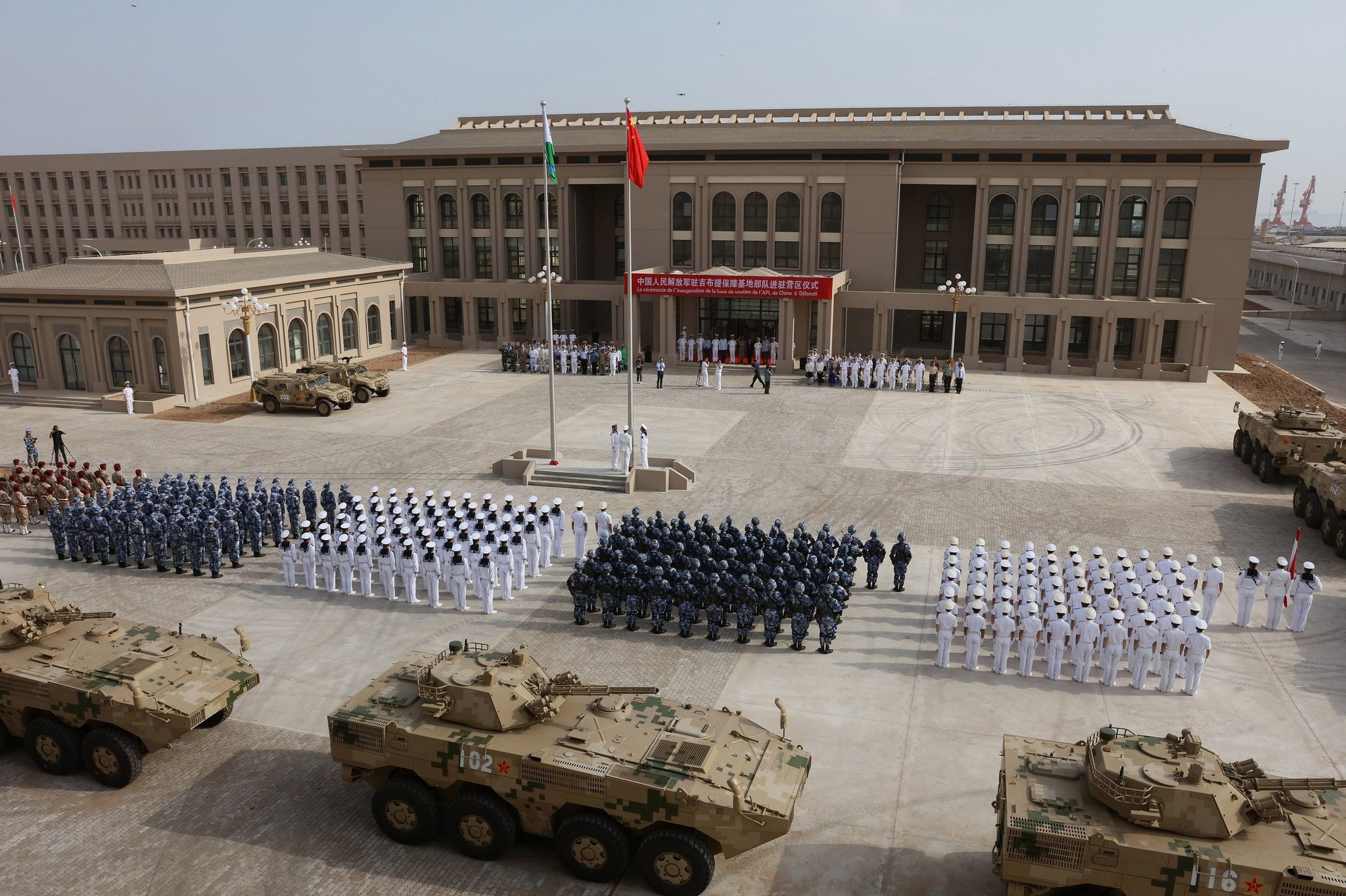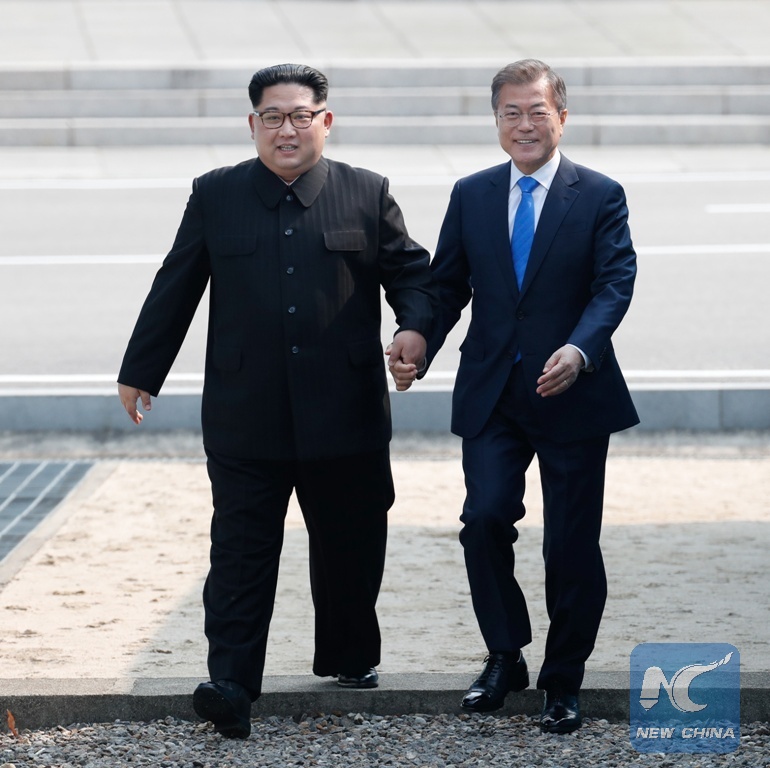
 China and the U.S. Lay Trade Demands on the Table
China and the U.S. Lay Trade Demands on the TableThe American trade delegation left China on Friday after two days of trade negotiations, and media outlets in both countries reported that substantial differences between the two sides remained. The talks, led by Chinese Vice Premier Liu He and U.S. Treasury Secretary Steven Mnuchin, covered topics such as the U.S. trade deficit with China (which was $375 billion in 2017), intellectual property protections, tariffs, and Chinese market practices.
Bloomberg News reported Friday morning that it had viewed a document presented by U.S. officials to Chinese officials at the outset of talks, titled "Balancing the Trade Relationship," which lays out U.S. requests on trade. The document calls for China to cut the two nations' trade deficit by at least $200 billion by the end of 2020 by purchasing more U.S. goods. It also requests for China to stop providing government support to favored industries as part of the Made in China 2025 plan, withdraw its request for World Trade Organization consultations on the U.S.' tariffs and China's status as a market economy, and agree to quarterly meetings with the U.S. to "review targets and reforms."
China's stated priorities were largely related to tariffs, investment restrictions and the U.S.' Section 301 investigation. In a separate document describing China's demands on trade, China asked the U.S. to treat Chinese investments equally in national security reviews and stop issuing new investment restrictions, lift the recently-issued export ban on ZTE, and to not impose 25% tariffs on Chinese products.
Despite the substantial differences acknowledged by both sides, officials were keen to portray a sense of optimism about the discussions this week, perhaps in an effort to placate markets. On Friday, Mnuchin said that the American delegation were having "very good conversations" with their Chinese counterparts. Chinese state-run media outlet Xinhua News Agency described the talks as "candid, efficient and constructive" and said that the countries had "reached agreements on some issues."
Daniel Ikenson, the director of the Cato Institute's trade policy center, wrote for China-US Focus this week that a "smarter, more durable approach" to disagreements between China and the U.S. "would be for Washington and Beijing to make lists of all of their gripes, put them on the table, and see whether, and to what extent, they can be resolved or mitigated in a bilateral trade or investment agreement." Despite the lack of resolute outcomes, the meetings between U.S. and Chinese officials on Thursday and Friday this week were an effort towards that end. Prior to the talks, Chinese foreign ministry spokesperson Hua Chunying said that it would be "unrealistic to expect to solve all the problems through one single consultation. . .given the volume of the two economies and the complexity of their relations." Amidst what appears to be increasingly hardening positions on both sides, many in China and the U.S. will likely be hoping that this week's exchange of opinions could pave the way for more relationship-building discussions in the future.
 Chinese Diplomats Will Make Multiple Foreign Visits in May
Chinese Diplomats Will Make Multiple Foreign Visits in MayThis month, high-level Chinese officials and the country's top diplomats will make a series of visits to neighboring countries. This week, Chinese Foreign Minister Wang Yi visited Pyongyang at the invitation of his North Korean counterpart, Ri Yong Ho, becoming the highest-ranking Chinese official to travel there in years. Wang spent two days in North Korea's capital, during which time he met with Kim Jong-un. The two men discussed their plans to open a "new high stage" of relations between China and North Korea. Wang returned to Beijing on Thursday.
Despite China's economic leverage over North Korea, commentators have argued that China wants to shore up their strained friendship ahead of the highly-anticipated Trump-Kim summit and avoid losing influence in upcoming peace negotiations. "Beijing likely would want to ensure that Pyongyang would not develop a closer relationship with Washington than Beijing," said Zhao Tong, a North Korea expert at the Carnegie-Tsinghua Center for Global Policy in Beijing. "The visit by the Chinese foreign minister, the first in 11 years, appears to be part of that effort."
In Pyongyang on Wednesday, Wang stated that the visit was prompted by recent warming relations between Pyongyang and other countries. "The inter-Korean summit has brought a favorable opportunity for a political settlement of the Korean Peninsula issue," he said, according to the Chinese Foreign Ministry.
Next week, Chinese Premier Li Keqiang will make an official visit to Indonesia and Japan, and attend the 7th China-Japan-ROK leaders' meeting in Japan which begins on May 6. Chinese Vice Foreign Minister Kong Xuanyou said in a press briefing on Friday that Premier Li's schedule was aimed at improving upon China's relations with Indonesia, and "bringing China-Japan ties back to a normal development track." The China-Japan-ROK summit is not expected to focus specifically on North Korea but instead on "regional cooperation" between the three countries.
 Military Tensions Flare Between China and the United States
Military Tensions Flare Between China and the United StatesJust a few months after the Trump Administration signalled that it considered China a "strategic competitor" in a defense strategy document, new signs of tension between China and the U.S. over their respective militaries have developed in both the South China Sea and in the vicinity of China's only overseas military base, in Djibouti.
Both China and the U.S. have military bases just miles away from each other in Djibouti, on the Horn of Africa. The U.S. uses its base, Camp Lemonnier, as a launch pad for operations in Yemen and Somalia. It houses about 4,000 U.S. military personnel and is the only permanent U.S. military base in Africa. China began construction of its base in Djibouti in 2016, with the first naval troops arriving in July 2017.
This week, the Pentagon accused Chinese military personnel stationed at their base of using lasers to interfere with U.S. military aircraft coming in to land at the American base, injuring several pilots. The U.S. State Department lodged a formal diplomatic protest with Beijing, asking it to investigate. Hua Chunying, a spokesperson of the Chinese foreign ministry, said that the government had conducted "serious checks" and had found the U.S. accusations groundless.
Also this week, the White House stated its objection to China's deployment of antiaircraft and anti-ship missiles on islands in the South China Sea. The Spratly or Nansha islands are a group of more than 100 islets and shoals in the South China Sea which China claims. If missiles have been deployed there, it would be the first reported Chinese missile deployment in the Spratly Islands. White House Press Secretary Sarah Sanders said on Thursday that "China's militarization of the South China Sea" would come with "near-term and long-term consequences."
Spokesperson Hua Chunying stressed China's "indisputable sovereignty" over the islands at a press conference on Thursday. "Our peaceful construction activities on the Nansha Islands, including the deployment of necessary national defense facilities, are meant to safeguard China's sovereignty and security," she said.
 This Week's Top Commentary
This Week's Top CommentaryTroy Stangarone of the Korea Economic Institute analyzes the content of the Panmunjeom Declaration in an article for China-US Focus this week. The document, agreed upon last week by North Korean leader Kim Jong-un and South Korean President Moon Jae-in at a summit on April 27, contains the first direct reference to denuclearization in an inter-Korean summit document.
As Stangarone argues, the key aspects of the document relate to three areas of inter-Korean cooperation: co-prosperity, reduction of military tensions, and the development of a permanent peace on the Korean peninsula.
"The Panmunjom Declaration is intentionally ambiguous in some regards," Stangarone writes. "If the summit with South Korean President Moon opened the door to a denuclearized North Korea, it will be up to President Trump to close the deal on denuclearization."
Read the full article here.
Prepared by China-US Focus editorial teams in Hong Kong and New York, this weekly newsletter offers you snap shots of latest trends and developments emerging from China every week, while adding a dose of historical perspective.
- 2018-04-27 U.S. Delegation Will Visit China Next Week
- 2018-04-20 China and the U.S. Seek Allies in Trade Dispute
- 2018-04-13 President Xi Reviews the PLA Navy
- 2018-04-06 China and Russia Pledge Military Cooperation in a Signal to the United States
- 2018-03-30 Kim Jong Un Visits Beijing on First Overseas Visit
- 2018-03-23 President Trump Asks for Tariffs on Around $50 Billion Worth of Chinese Imports
- 2018-03-16 Tillerson to be Replaced by Mike Pompeo as Secretary of State
- 2018-03-09 President Trump Agrees to Meet Kim Jong-Un
- 2018-03-02 U.S. Imposes Tariffs on Chinese Aluminum
- 2018-02-23 A Week of Developments Related to North Korea
- 2018-02-16 Cui Tiankai says U.S. Should Not Advocate Confrontational Strategy Towards China
- 2018-02-09 China Releases the “No.1 Central Document” Containing New Rural Policies
- 2018-02-02 Wang Qishan Appointed to the National Legislature
- 2018-01-26 New Edition of the Focus Digest
- 2018-01-19 South Korea and North Korea to Compete Together at the Winter Olympics
- 2018-01-12 U.S. House of Representatives Passes Taiwan Bills
- 2018-01-05 U.S. Rejects Sale of Moneygram to China’s Ant Financial
- 2017-12-22 Trump’s National Security Strategy Labels China a “Revisionist Power”
- 2017-12-15 White House and Secretary of State contradict each other on North Korea talks
- 2017-12-08 China Boasts its Technology Chops at the 4th Annual World Internet Conference
